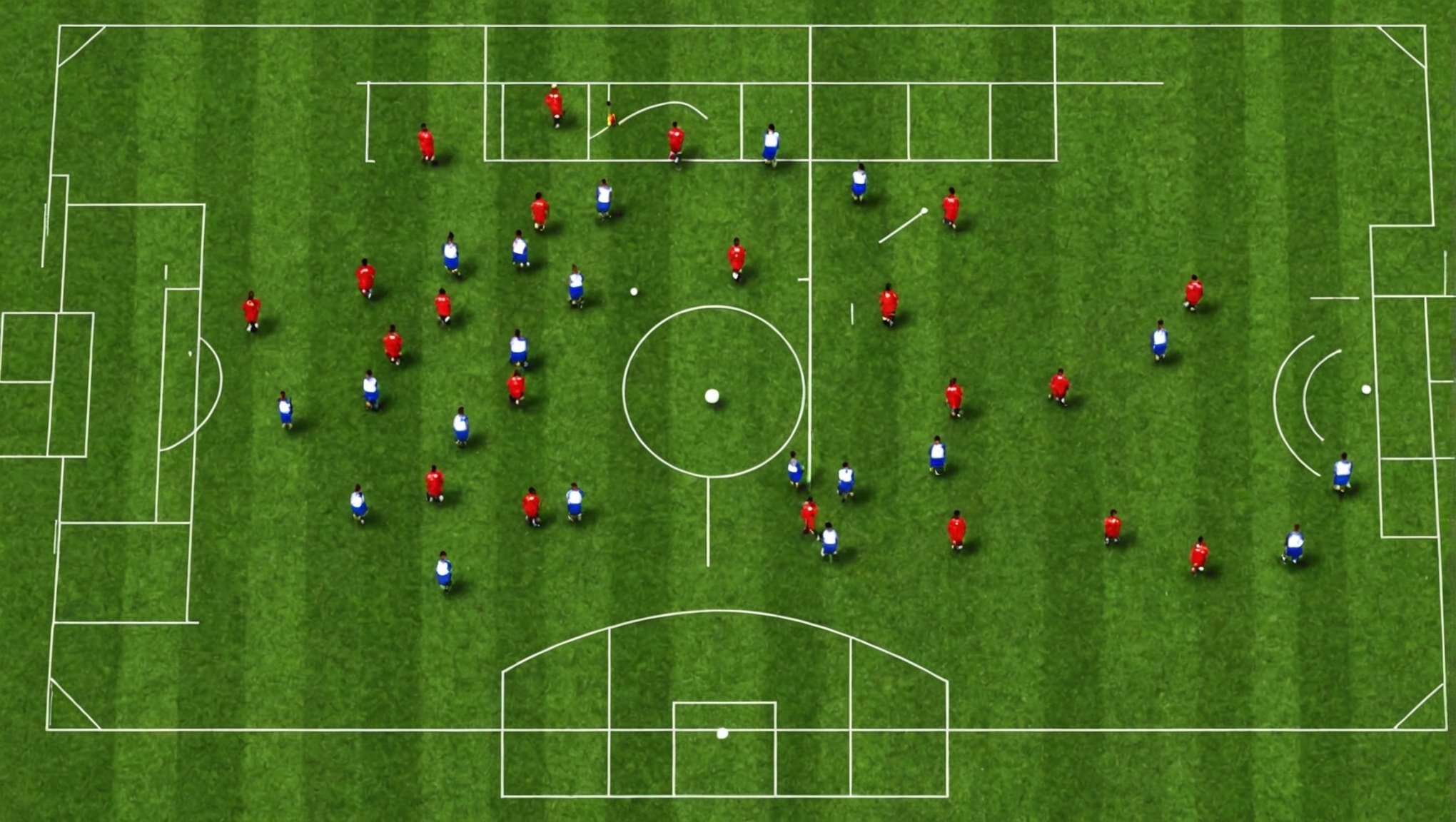The Role of Technology in Football Tactics
In modern football, technology significantly influences tactics and strategy, driving evolution within the sport. Historically, football evolution saw modest technological influences, such as improved ball design and basic statistical tracking, which provided limited insights. However, the growth of tactical analysis has surged due to technological advancements.
Historical Context and Key Technologies
Early technological influences included video analysis, revolutionising how teams prepared by studying opponents’ gameplay and developing counter-strategies. Forward-thinking managers leveraged such tools to gain competitive advantages. Over time, tactical analysis has incorporated more complex systems, like heat maps and player-tracking software, further refining tactical decision-making.
This might interest you : Essential Nutritional Approaches for UK Rugby Players to Boost Muscle Recovery
Recent Advancements
More recent developments in technology are shaping tactics in unprecedented ways. GPS tracking, for example, monitors player movements to optimise positioning and substitutes. Advanced data analytics uncover patterns and predict match outcomes, enabling coaches to refine their strategies with precision. Virtual reality tools are also emerging, allowing players to mentally rehearse scenarios, further enhancing tactical acumen.
The integration of technology into football has undeniably driven the sport’s evolution, ensuring tactical preparation is more informed, precise, and effective. As these tools continue to develop, they promise to revolutionise the landscape further, enhancing both training and in-game decisions to complexly fine-tune team performance.
This might interest you : Unlocking Peak Performance: The Ideal Sleep Strategies for UK Track Athletes
Analytics Software and Data-Driven Decisions
Analytics in football has dramatically changed how clubs approach the game. Football clubs are increasingly relying on data analysis tools to gain a competitive edge. These sophisticated systems interpret vast amounts of data to generate critical performance metrics that drive strategic decision-making.
Introduction to Football Analytics
Analytics in football transforms subjective assessments into quantifiable insights. Coaches and analysts employ data analysis to scrutinise player performance, helping them understand strengths and weaknesses better. By using performance metrics, teams can evaluate key areas such as ball possession, passing accuracy, and player positioning.
Key Performance Indicators (KPIs)
Key Performance Indicators (KPIs) in football are crucial for aligning tactics with data-driven insights. These metrics include parameters like shots on target, successful passes, and defensive actions. Properly understanding these KPIs allows clubs to tailor their game plan, improving the chance of winning.
Impact on Coaching and Game Strategy
The adoption of analytics has revolutionised coaching methods. For instance, analysing specific KPIs helps coaches like Pep Guardiola adapt their strategies dynamically. Data analysis tools enable them to fine-tune formations and gameplay, thereby optimising team performance. As analytics evolve, its impact on both player development and game outcomes will continue to grow.
Video Assistant Referee (VAR) and Tactical Adjustments
In recent years, the introduction of VAR in football has revolutionised officiating by enhancing decision accuracy. However, it has also influenced how teams approach games tactically. VAR helps referees review contentious decisions, such as goals, penalties, and red cards, using multiple camera angles, providing clarity that was previously unavailable on the pitch. This innovation, part of modern officiating technology, strives to minimise human error and ensure fair play, though it sometimes leads to delays in the game.
Understanding VAR in Football
VAR essentially serves as a safeguard, ensuring critical match decisions reflect real-time actions correctly by employing video replay systems. Initially, its implementation in various leagues met with mixed reactions but has now become an integral tool in football officiating.
Case Studies of VAR Impact on Matches
Several matches exhibit how VAR influences tactical decisions. For instance, when a goal is overturned due to an offside ruling, teams often rethink their attacking strategies. Similarly, when defensive fouls are penalised after review, teams may adjust their defensive aggression to avoid conceding penalties.
Coaches’ Perspectives on VAR
Coaches now strategise with an understanding that VAR reviews can alter match dynamics. They often prepare their teams to maintain composure during VAR reviews, emphasising the need for adaptability in formation and tactics to align with potential decision changes. As a result, coaches’ tactical adaptability has become crucial in the modern game.
Evolution of Training Equipment
Training technology has transformed the sports industry, offering enhanced training methods that significantly improve player performance. Modern tools like GPS trackers and VR training have revolutionised the way athletes train and prepare for competition. These technologies have become integral in monitoring and optimising player conditioning, effectively preventing injuries, and enhancing tactical awareness.
GPS trackers, for instance, provide real-time data on player movements, speed, and heart rates, allowing coaches to tailor training sessions to individual needs. This technology aids in injury prevention by ensuring athletes are not overexerting themselves and helps in crafting personal recovery plans.
VR training is another groundbreaking advancement. It immerses players in simulated match scenarios, enhancing their decision-making and reaction times without the physical strain of on-field practice. This method not only improves tactical awareness but also helps players mentally rehearse various game situations.
A notable case study is how top football clubs have adopted these technologies. Teams like Manchester City and Bayern Munich utilise GPS trackers and VR in their training routines, achieving remarkable success in player performance and injury management. By embracing these cutting-edge tools, clubs are setting new standards in sports training.
Historical Context of Football Tactics
The history of football tactics reveals a fascinating blend of tradition and evolution. Traditionally, football tactics were centered around rigid formations with a focus on defense. The classic 2-3-5 formation, also known as the ‘Pyramid’, was prevalent in the early 20th century, emphasizing robust defense and wing play.
Traditional Tactics vs. Modern Approaches
As the game advanced, so did tactical formations. Modern approaches stress flexibility and adaptability, often employing dynamic systems like the 4-3-3 or 3-5-2. These formations are more fluid, reflecting an evolution in gameplay where defensive solidity is equally matched by attacking prowess. Modern tactics focus on exploiting space and enhancing ball control, creating a balance between defense and attack.
Influential Coaches and Their Tactical Innovations
Coaches have been pivotal in the evolution of football tactics. Icons like Rinus Michels introduced ‘Total Football’, which emphasized player versatility and tactical fluidity. Johan Cruyff furthered this with his influence on Barcelona’s possession-based play. Their innovations have left lasting legacies, marking significant shifts in the game’s tactical history.
Major Tournaments That Shaped Tactical Trends
Major tournaments often serve as catalysts for tactical change. Events such as the World Cup have consistently introduced and cemented new gameplay strategies. Notably, the 1974 World Cup showcased ‘Total Football’, reshaping global perceptions and approaches to football strategy. These events provide platforms for tactical experimentation and adaptation.
The Future of Football Tactics and Technology
In the realm of football, technological advancements are not just enhancing the game but revolutionizing it. Predictions suggest that emerging technologies, like artificial intelligence and data analytics, could profoundly influence the strategic evolution of football tactics. Imagine coaches using real-time data analysis during matches to adjust strategies on the fly, capitalizing on opponents’ weaknesses instantly. Such capabilities may soon be standard practice, reshaping how football is played.
Furthermore, the long-term impacts on tactical decision-making are expected to be significant. Enhanced data collection and analysis could pave the way for more informed decisions, allowing teams to refine their tactics with precision. Coaches would be armed with insight into player performance, facilitating substitutions and formation changes based on empirical evidence rather than intuition alone.
However, embracing these technologies also brings about ethical considerations. The balance between human intuition and machine precision may blur the lines of fairness, raising questions around sportsmanship and competitive advantage. Moreover, the accessibility of such technologies could widen the gap between financially empowered teams and those with lesser resources.
The future of football tactics and technology promises a game that is ever more exciting, albeit with challenges that demand sensible navigation.











